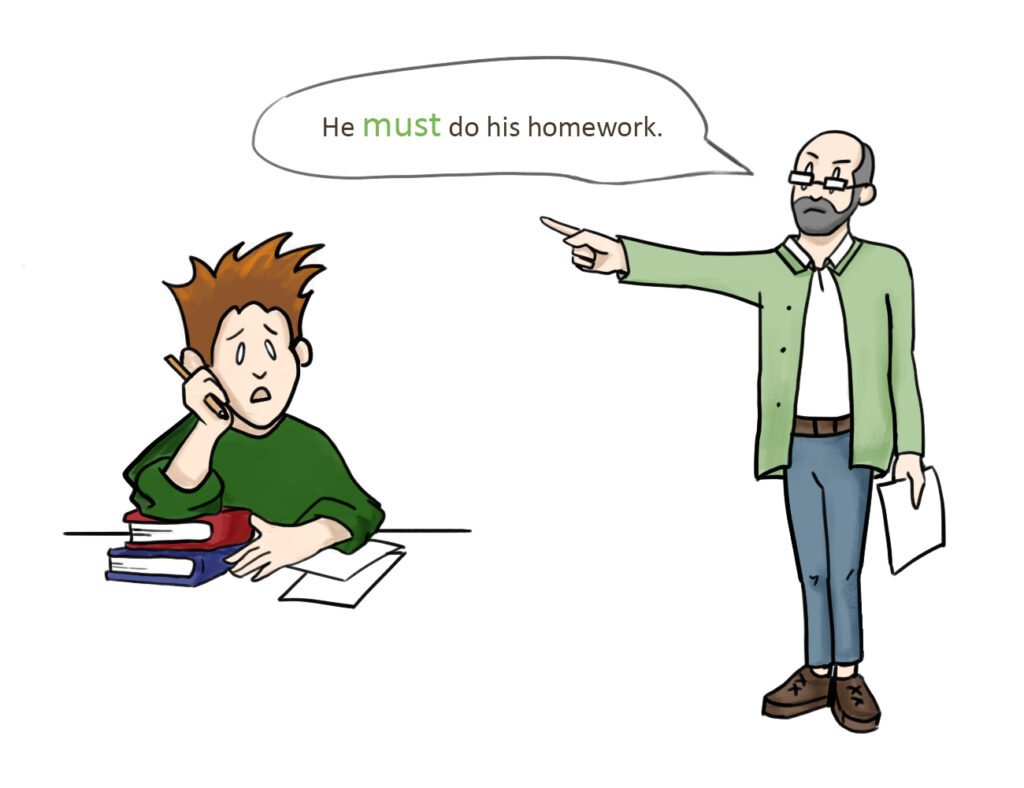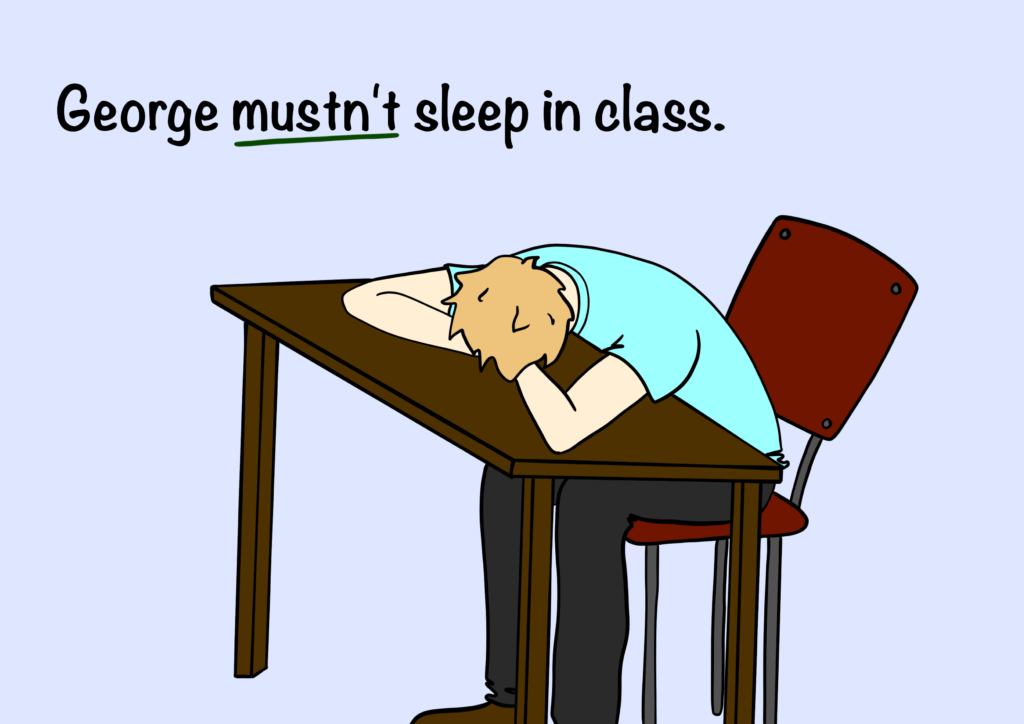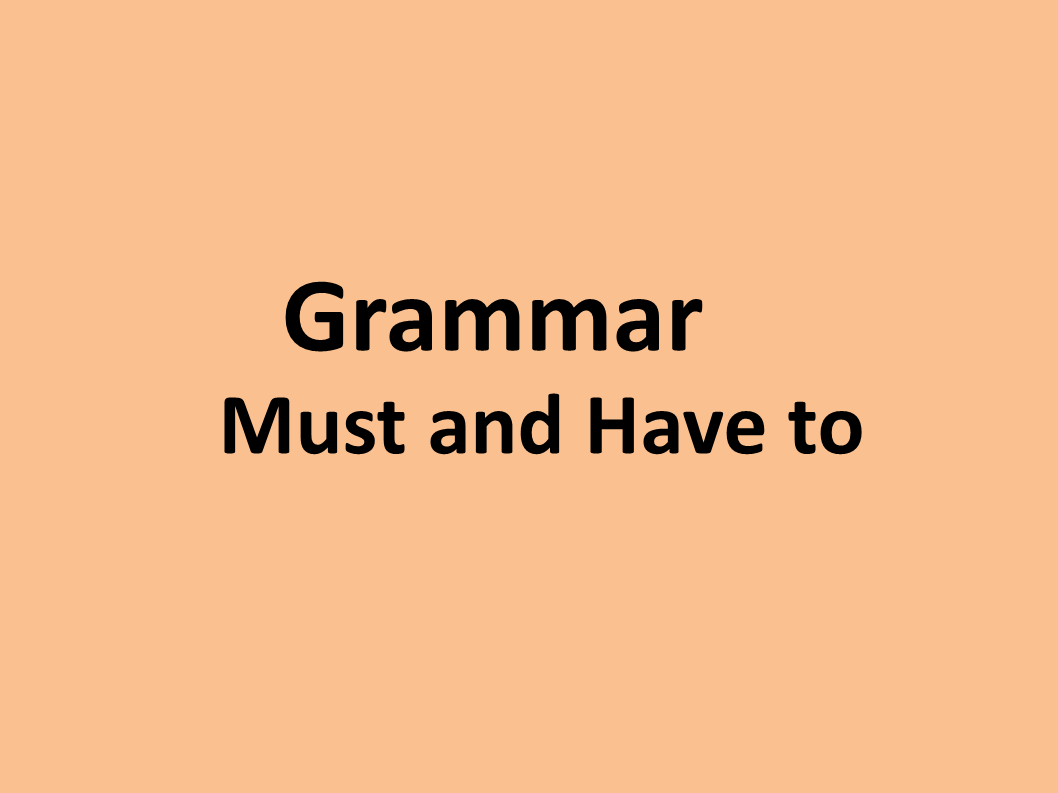We use have to and must + infinitive when we talk about something that is necessary to do. Both must and have to are used for obligation.
Example:
I must go to work now.
or
I have to go to work now.
These two words have very similar meanings, but there is a difference in which situations each word is used. While must can generally be replaced by have to, there is a slight difference in their use:
We generally use must when the speaker decides that something needs to be done. Must expresses the speaker’s feelings. Must is used more in formal writing, for example in written notices.

Examples:
- I am having a party on Saturday. You must come. (I want you to come.)
- I must remember to call our client tomorrow. (my opinion)
- I must stop smoking; it is bad for me. (my opinion)
- I must go now, it is late. (my opinion)
- You must be mistaken. (my opinion)
- We must have breakfast first. (my opinion)
- It is a great film. You must see it!

We use have to when somebody else other than the speaker has made the decision. Have to is frequently used in conversation and it is mainly used to express obligations.
Examples:
- You have to go to school tomorrow. (there’s a rule requiring you to go to school)
- You have to take your guinea pig to the vet if it gets sick.
- Do you have to wear uniform at school? (asking about school rules)
- You have to go to work on Monday.
- He has to clean his room.

However, in their negative forms, mustn’t and don’t have to have completely different meanings:
We use mustn’t to express prohibition
Examples:
- I mustn’t eat too much bread, I am getting fat.
- Students must not leave their bags here.
- Policemen must not drink on duty.
- You mustn’t be late for class.
- He must not forget his books.
- I mustn’t make a mess on the table.
- You mustn’t drive because you do not have driving licence.
- George must not sleep in class.

We use don’t have to to express the absence of obligation or necessity:
- You are tired, you don’t have to drive. I will.
- He doesn´t have to go to work on Sundays.
- Children don’t have to wear a uniform at this school.
- We don’t have to go to shop today. We can go tomorrow.
- We don’t have to watch this movie; we can watch something else.
Forming sentences with must
| Affirmative | Negative | Interrogative |
| I must work. | I must not (mustn´t) work. | Must I work? |
| You must work. | You must not (mustn´t) work. | Must you work? |
| He must work. | He must not (mustn´t) work. | Must he work? |
| She must work. | She must not (mustn´t) work. | Must we work? |
| It must work. | It must not (mustn´t) work. | Must it work? |
| We must work. | We must not (mustn´t) work. | Must we work? |
| They must work. | They must not (mustn´t) work. | Must they work? |
Forming sentences with have to
| Affirmative | Negative | Interrogative |
| I have to work. | I do not (don´t) have to work. | Do I have to work? |
| You have to work. | You do not (don´t) have to work. | Do you have to work? |
| He has to work. | He does not (doesn´t) have to work. | Does he have to work? |
| She has to work. | She does not (doesn´t) have to work. | Does she have to work? |
| It has to work. | It does not (doesn´t) have to work. | Does it have to work? |
| We have to work. | We do not (don´t) have to work. | Do we have to work? |
| They have to work. | They do not (don´t) have to work. | Do they have to work? |

